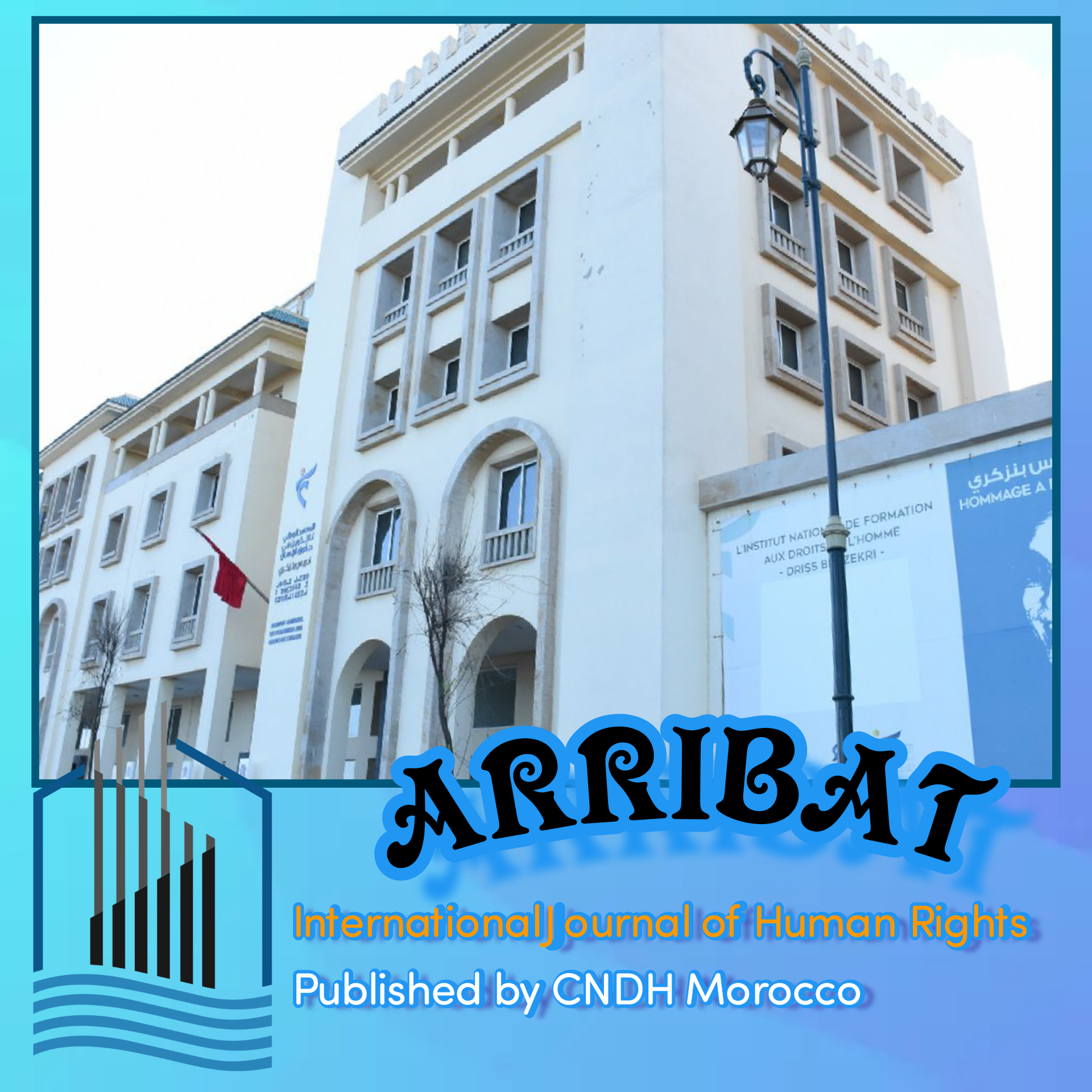Freedom of opinion and expression in international human rights law: between absolutism and restriction
Mohammed AYAT
Abstract
This article aims to contribute to the debate sparked by CNDH in Morocco on freedom of expression in the digital space. Freedom of expression and opinion are rights protected and guaranteed by the international human rights law. However, while the right to freedom of opinion is absolute, the right to freedom of expression is relative. This is because expressing an opinion to the public holds the person accountable to the adverse consequences it may engender. Thus, the right to expression is sometimes restricted to respect others’ freedom or to protect public interests. This raises a debate on the legality and legitimacy of the restrictions imposed to the right to expression.
Keywords
References
[1] UN Human Rights Committee, «Kang v. Republic of Korea CCPR/C/78/D/878/1999,» 2003.
[2] UN Human Rights Committee, «General Comment No. 22: The right to freedom of thought, conscience and religion ( Art. 18) CCPR/C/21/Rev.1/Add.4,» 1993.
[3] K. O'Rourke, John Stuart Mill and Freedom of Expression: the genesis of a theory, Routledge, 2003.
[4] D. Moeckli, S. Shah et S. Sivakumaran, International human rights law, Oxford University Press, 2010.
[5] Inter-American Court of Human Rights, «Case of Claude-Reyes et al. v. Chile,» 2006.
[6] م. برادو, «تقدير المشروع المتعلق بالقانون حول الحق في الوصول على المعلومات,» موقع العلوم القانونية, 14 04 2013.
[7] G. R. R. RUIZ, «The ordinary judge as a constitutional judge. About the confluence of constitutional justice models and their projection in the protection of constitutional rights,» Le Chellah, 2021.
[8] UN Human Rights Committee, «Womah Mukong v. Cameroon, Communication No. 458/1991, U.N. Doc. CCPR/C/51/D/458/1991,» 1994.
[9] European Court of Human Rights, «CHAMBER JUDGMENT IN THE CASE OF VON HANNOVER v. GERMANY,» 2004.
[10] European Court of Human Rights, «Application No. 34315/96,» 2002.
[11] European Court of Human Rights, «CASE OF LINGENS v. AUSTRIA - Application no. 9815/82 - JUDGMENT,» 1986.
[12] Lakome, «Projet de code de la presse. La morale, une "ligne rouge" supplémentaire ?,» 07 03 2013. [En ligne]. Available: https://fr.lakome.com/index.php/medias/488-projet-de-code-de-la-presse-apres-l-interdiction-politique-l-interdiction-morale.
[13] q8net, «القضاء يبرئ عادل امام من تهمة الاساءة للاسلام,» 10 04 2015. [En ligne]. Available: https://www.q8news.com/100078/.
[14] EUROPEANCOURTOFHUMANRIGHTS, «CASE OF HANDYSIDE v. THE UNITED KINGDOM - Application no. 5493/72 - JUDGMENT,» Strasbourg, 1976.
[15] UN Human Rights Committee, «General Comment No. 10: Freedom of expression (Art. 19),» 1983.
Submitted date:
02/09/2021
Reviewed date:
03/30/2021
Accepted date:
05/27/2021
Publication date:
05/27/2021

